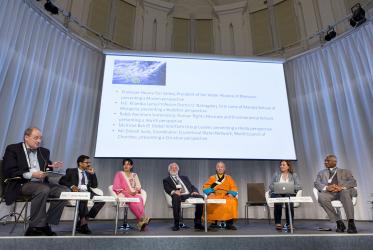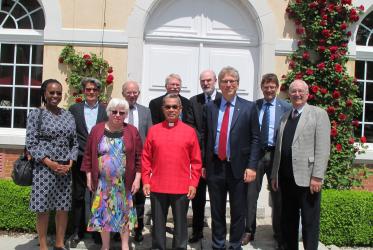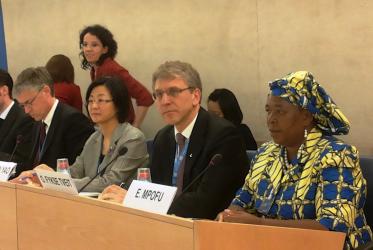Displaying 41 - 60 of 102
23 September 2016
In Ghana, women bring open minds, honest words
05 July 2016
Symposium focuses on religion, violence, extremism
04 February 2016
WCC/UN conference calls for coordinated action on refugee crisis
20 January 2016
Rebuilding a smashed church in Albania
23 December 2015
WCC urges responsibility for and support to the refugees in Europe
04 September 2015













